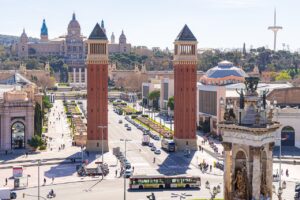A growing wave of Filipino students are setting their sights on Spain for post-graduate education, drawn by a unique combination of academic opportunities and accessible pathways to residency.
Spain’s appeal lies in its diverse range of programs catering to a wide spectrum of academic interests. From engineering and law to health sciences, administration, and the humanities, the country offers specialized master’s programs attracting a new generation of Filipino scholars.
The increase in Filipino students isn’t accidental; it’s directly linked to the availability of student visas. This ease of access is a significant factor, opening doors for ambitious individuals seeking to further their education abroad.
Tuition costs at Spanish public universities are surprisingly affordable for international students. Master’s and doctoral programs typically range from €2,000 to €5,500 annually, while bachelor’s degrees average between €1,500 and €4,000 per year.
Many students are leveraging the Auxiliares de Conversación program, a unique opportunity to immerse themselves in Spanish culture while earning an income. This program partners with the Ministry of Education, allowing students to teach English and simultaneously pursue a master’s degree in teaching.
Beyond academics, Spain’s visa policies are playing a crucial role in attracting Filipino families. Programs like the Golden Visa and the Digital Nomad visa offer streamlined paths to residency, while the Ley de Memoria Democrática provides a route to citizenship for descendants of Spanish nationals.
This isn’t simply about education; it’s about families choosing a new home. With Spanish passports in hand, families are relocating, bringing their children with them to benefit from the country’s educational system.
The connection between the Philippines and Spain runs deep, rooted in a shared history spanning centuries. From Magellan’s arrival in 1521 to the 333 years of Spanish colonization, the cultural and religious influences are undeniable, shaping the Philippines we know today.
This historical bond, combined with modern opportunities, is fueling a renewed interest in Spain among Filipinos, creating a vibrant community of students and families eager to build a future in Europe.






